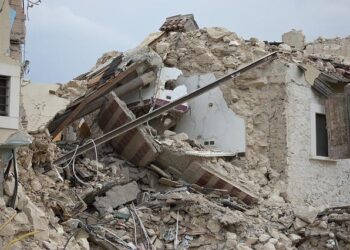Strengthening Medical Preparedness in North Macedonia: A Collaborative Training Endeavor
Advancing Military Medical Capabilities Through Targeted Training
The 4th Security Force Assistance Brigade (SFAB) has initiated an extensive training program designed to elevate the medical readiness of North Macedonia’s armed forces. This initiative emphasizes practical, scenario-based instruction, combining hands-on workshops with realistic simulations that prepare military medical personnel for both combat-related injuries and humanitarian crises. By partnering closely with local medics, SFAB advisors are ensuring that these professionals possess the skills necessary to deliver rapid and effective care under pressure, thereby enhancing overall mission success.
The core goals of this training effort include:
- Refining trauma management: Introducing cutting-edge emergency response techniques tailored for battlefield conditions.
- Boosting interoperability: Strengthening coordination between U.S. and Macedonian forces during joint medical operations.
- Emphasizing preventive health: Educating troops on hygiene practices and infectious disease control relevant to deployment environments.
- Cultivating psychological resilience: Preparing soldiers mentally for high-stress scenarios encountered in combat zones.
| Training Module | Description |
|---|---|
| Tactical Combat Casualty Care (TCCC) | A comprehensive course teaching immediate life-saving interventions on the battlefield. |
| Combat Lifesaver Program |   Focused training enabling non-medical personnel to provide critical first aid support. |   
| Field Medical Procedures |  Practical exercises simulating diverse operational environments for skill reinforcement. |  
Nurturing Strong Alliances in Military Healthcare Systems
The partnership between U.S. Army Special Forces and North Macedonian military healthcare units highlights a strategic commitment to improving medical preparedness through shared expertise. Recent collaborative sessions led by the SFAB have focused on integrating advanced combat medicine protocols into local practices, fostering not only enhanced capabilities but also mutual trust among allied forces. These efforts contribute significantly toward creating a unified approach to battlefield healthcare challenges across NATO members and partners alike.
Main areas emphasized during these joint trainings include:
- Crisis Medical Response: Developing rapid treatment skills tailored for urgent combat injuries.
- Surgical Supply Chain Management: Optimizing logistics systems to ensure timely availability of essential medical equipment and pharmaceuticals in field conditions.
- Mishap Prevention Techniques: Implementing strategies aimed at reducing injury rates during rigorous military exercises through proper safety protocols and conditioning programs.
| Main Focus Area | Description of Training Activities |
|---|---|
| Combat First Aid Drills                                                                                                                                                  | |
This collaboration extends beyond immediate tactical improvements by encouraging continuous innovation within military health services‚ÄĒadapting swiftly as new threats emerge or operational demands evolve. The ongoing exchange fosters resilience not only within individual units but across allied defense networks as a whole, reinforcing collective security frameworks throughout Southeast Europe.
Pioneering Best Practices in Integrated Medical Support During Joint Operations
The SFAB’s ongoing engagement with North Macedonian forces includes meticulously planned joint exercises designed to embed robust medical support seamlessly into broader mission plans. These drills emphasize real-time application of lifesaving procedures alongside coordinated communication strategies that enhance responsiveness amid complex operational scenarios such as multinational peacekeeping or disaster relief missions.
The program’s key components encompass:
- Sophisticated Simulation Exercises: Utilizing immersive role-playing scenarios replicating battlefield emergencies ensures participants gain confidence handling unpredictable situations effectively.
- User-Friendly Equipment Familiarization: Trainees receive detailed guidance on operating modern portable diagnostic devices, hemorrhage control kits, and evacuation gear critical for frontline care.
- Cohesive Communication Frameworks: A focus is placed on establishing clear inter-unit channels facilitating swift information flow between medics, commanders, evacuation teams, and supporting agencies.
- Diligent After-Action Assessments: A structured review process identifies strengths while pinpointing areas requiring refinement following each exercise cycle.
| Exercise Segment
Objective |
|---|
A Forward-Looking Vision for Regional Defense Health Preparedness
The persistent dedication demonstrated by the advisors from the 4th Security Force Assistance Brigade underscores America‚Äôs enduring pledge toward strengthening allied defense capabilities through enhanced medical readiness initiatives. By sharing specialized knowledge alongside practical experience with their North Macedonian counterparts, they are cultivating a more agile force capable of responding decisively when confronted by emergencies‚ÄĒwhether arising from conflict or natural disasters alike.
Such cooperative ventures exemplify how international partnerships serve as pillars supporting regional stability while advancing collective security objectives within NATO frameworks.
As global security landscapes continue evolving rapidly‚ÄĒwith emerging threats demanding adaptive responses‚ÄĒthe groundwork laid today will empower future generations of military professionals prepared not only tactically but medically resilient against unforeseen challenges ahead.
ÔĽŅ
ÔĽŅ
ÔĽŅ
ÔĽŅ
ÔĽŅ
ÔĽŅ
ÔĽŅ
ÔĽŅ
ÔĽŅ
ÔĽŅÔĽŅ
ÔĽŅÔĽŅÔĽŅÔĽŅÔĽŅÔĽŅÔĽŅÔĽŅÔĽŅÔĽŅÔĽŅÔĽŅÔĽŅÔĽŅÔĽŅ
‚ÄÉ‚ÄÉ‚ÄÉ‚ÄÉ‚ÄÉ‚ÄÉ‚ÄÉ‚ÄÉ‚ÄÉ‚Äā‚ÄČ‚ÄČ‚ÄČ‚ÄČ‚ÄČ‚ÄČ‚Ää‚Ää‚Ää‚Ää‚Ää‚Ää‚Äā‚Äā‚Äā‚Äā‚Äā‚Äā‚Äā‚Äā‚Äā‚Äā
‚Äā‚Äā
‚Äā‚Äā
‚Äā‚Äā
‚Äā‚Äā
‚Äā‚Äā
‚ÄĮ‚ÄĮ‚ÄĮ‚ÄĮ‚ÄĮ‚ÄĮ‚ÄĮ‚Äć‚Äć‚Äć‚Äć‚Äć



















‚ÄĄ‚ÄĄ‚ÄĄ‚ÄĄ‚ÄĄ‚ÄĄ‚ÄÖ‚ÄÖ‚ÄÖ‚ÄÖ‚ÄÖ‚ÄÖ‚ÄÖ‚Āü‚Āü‚Āü‚Āü‚Āü‚Āü‚Ā†‚Ā†‚Ā†‚Ā†‚Ā†‚Ā†‚Ā†¬≠¬≠¬≠¬≠¬≠¬≠¬≠¬≠¬≠¬≠¬≠‚Äď‚Äď‚Äď‚Äď‚Äď‚Äď‚Äď‚Äď‚Äď
—
[End Article]















